Strengthening Civil Society Impact on Westminster in the Years Ahead – Cardiff Conference
April 19, 2024
In March, over 90 civil society leaders from across the United Kingdom convened in Cardiff for the third 4 Nations Civil Society Conference. Organised by the Welsh Consortium for Voluntary Action (WCVA) and Wales Governance Centre in partnership with the Civil Society Alliance (CSA) and the Human Rights Consortiums in Northern Ireland and Scotland, the conference was a crucial opportunity in the lead-up to the General Election to strategise, plan, and put in place the networks to strengthen civil society’s influence on Westminster including thirteen organisations from Northern Ireland in attendance. We are grateful to the Legal Education Fund for generously sponsoring the conference.
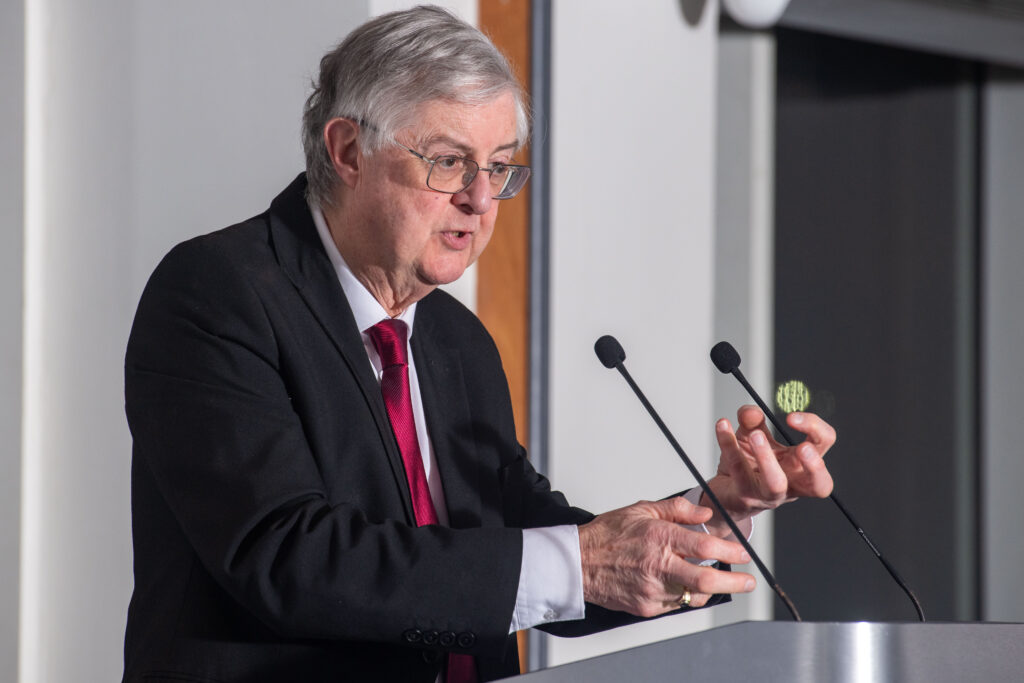
The #4NationsCivilSociety Conference, St David’s Hotel, Cardiff, 21st March 2024. Pictured: Former First Minster of Wales Mark Drakeford. Photographer: Natasha Hirst
The first day featured keynotes from leading Conservative and Labour politicians on the relationships they hope to build with civil society. First, David TC Davies MP, the Secretary of State for Wales, emphasised the essential role of the community and voluntary sector in connecting communities with policymakers. Later in the day, the Shadow Minister for Arts, Heritage and Civil Society, Lillian Greenwood MP, outlined Labour’s vision to strengthen ties with civil society and to treat the sector as a ‘critical friend’, even if government and civil society do not, ultimately, reach the same conclusions. Rounding off the day, we were fortunate to be joined by former First Minister Mark Drakeford as a speaker at dinner, who encouraged civil society to be authentic, be authoritative, be local, be in the room where decisions are taken, be vocal, and be bold when engaging with government.
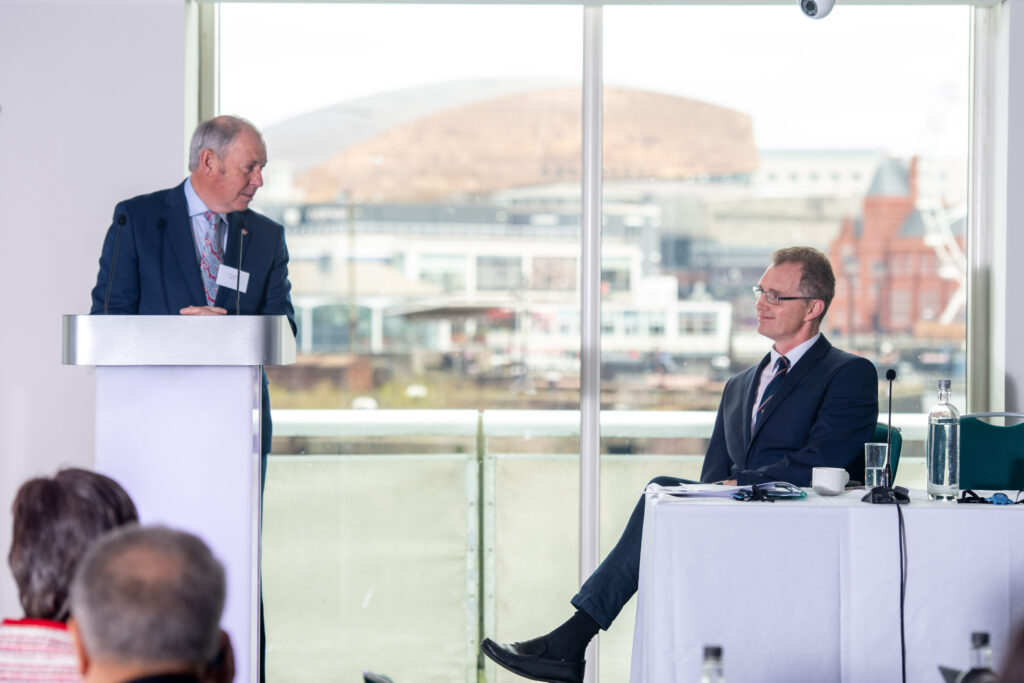
The #4NationsCivilSociety Conference, St David’s Hotel, Cardiff, 21st March 2024. Photographer: Natasha Hirst
The conference’s panel discussions meanwhile explored the challenges and opportunities facing civil society from across the United Kingdom on topics like constitutional reform, priorities of the sector, and influencing Westminster. One of the sessions titled “What next for Constitutional Reform in the UK?” saw academic experts like Colin Harvey, Lisa James, Aileen McHarg, and Rowan Williams discuss the urgent need for ‘constitutional repair’ post-Brexit to address democratic backsliding, the complexities of devolution, and the need for a Bill of Rights for Northern Ireland.
The second day of the conference continued with vital discussions on legislative influence, where speakers like Patrick Corrigan from Amnesty International, Charlie Whelton from Liberty, Aria Danaparamita from the Joint Council for the Welfare of Immigrants, and Ruth Chambers from Green Alliance shared their experiences in influencing UK legislation concerning human rights and environmental protection.
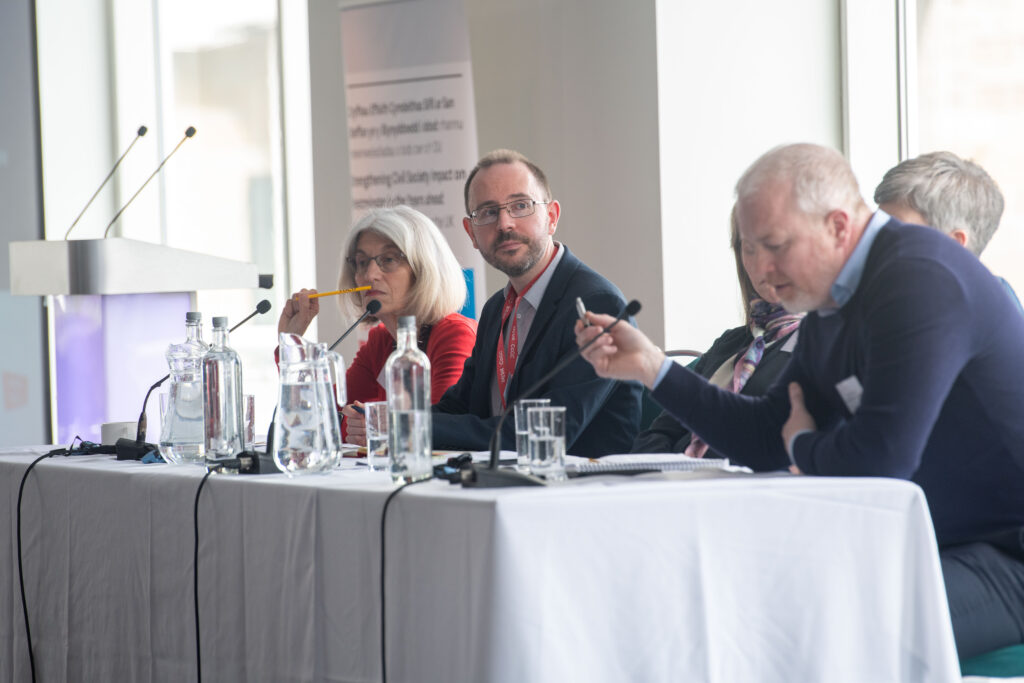
Kevin Hanratty, Director of the Human Rights Consortium presenting on the first panel “Looking back, looking forward – key challenges and opportunities for civil society’s voice” with (L-R) Rosalind Stevens, Project Manager at the CSA, Charles Witmore, Research Associate at the WCVA and Wales Governance Centre, Rachel Minto, Senior Lecturer at Wales Governance Centre, and Mhairi Snowden, Director of Human Rights Consortium ScotlandThe #4NationsCivilSociety Conference, St David’s Hotel, Cardiff. 21st March 2024. Photographer: Natasha Hirst
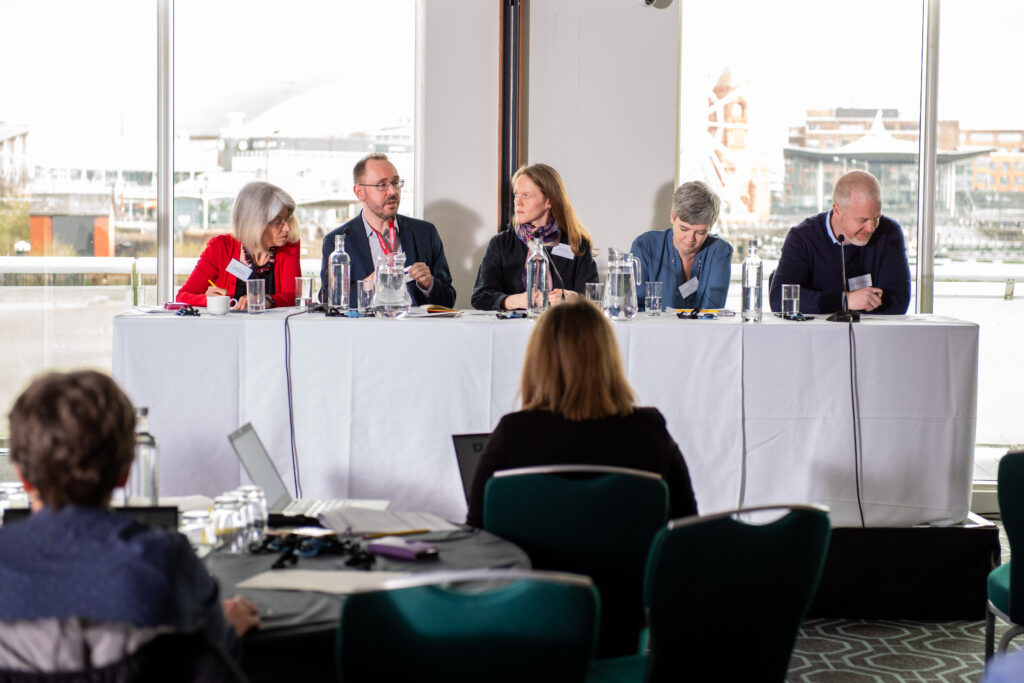
The #4NationsCivilSociety Conference, St David’s Hotel, Cardiff, 21st March 2024. Photographer: Natasha Hirst
Breakout discussions explored different themes in the context of the forthcoming general election such as: environmental protection; economic, social, and cultural rights; migrant rights; and practical strategies for influencing Westminster including the legal frameworks that govern lobbying activities. The unconference sessions on day two provided a valuable opportunity for participants to explore other topics sourced from the bottom-up, network and strategise for the future.
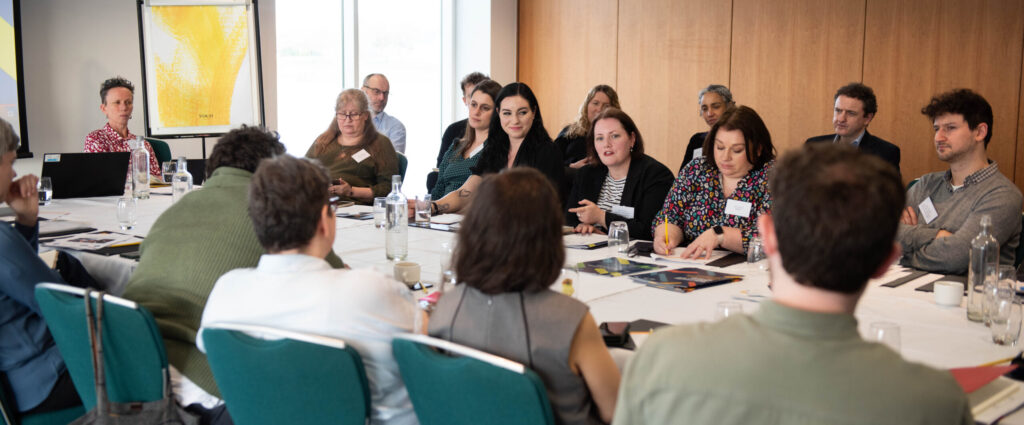
The #4NationsCivilSociety Conference, St David’s Hotel, Cardiff, 21st March 2024. Photographer: Natasha Hirst
The conference concluded with a forward-looking panel that discussed the overarching themes of the conference and the paths forward for civil society in influencing public policy. The final remarks by Charles Witmore underscored the importance of continued collaboration to harness the potential of civil society to influence policy and deliver on the discussions held throughout the two days.
Please keep an eye on our social media and website for information about follow-on events and campaigns which have emerged thanks to the time spent in Cardiff and the networks built there between civil society leaders across the UK.
Tags: Cardiff, Four Nations, Wales